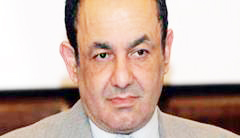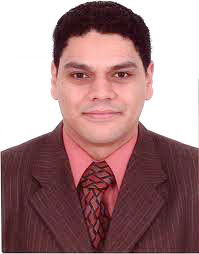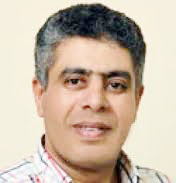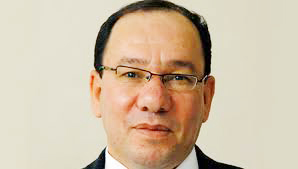Writers across Egyptian newspapers have explored an assortment of topics. Some of them dissected the deteriorating level of human rights in Egypt, especially after the recent clip of torture showing a man being beaten and dragged across the ground by Central Security Forces (CSF). Other writers condemned the opposition and their failing attempts to establish popularity on the ground.
The crisis of the opposition
Amr Al-Shobaki
Al-Masry Al-Youm newspaper

Al-Shobaki argues that the second round of clashes which occurred in front of the presidential palace last Friday falls under the responsibility of President Mohamed Morsi’s policies and the Muslim Brotherhood; the opposition, on the other hand, has paid the dearest price.
Some believe that the more radical and violent the reactions to the protests become, the more likely it is that Morsi will go Mubrak’s way. Al-Shobaki refutes this hypothesis, however: he believes that the main focus of attention should be on rebuilding a political system or group that will be able to fill the vacuum once the Muslim Brotherhood fall.
The secular opposition had lost much even before the 25 January Revolution. Its members have always been keeping an eye on its leaders and active members and did not pay similar attention to social mobilisation and the establishment of a wide circle of supporters on the ground.
However, the writer states that the virtual success of the opposition, which is represented in the National Salvation Front (NSF), appears in the 37% of voters who chose to vote no for the recently passed constitution. Their minimal success was apparent when they managed to gather protesters in several city centres and chant against the rise of the Muslim Brotherhood and their rule. Al-Shobaki finally warns the opposition from losing their popularity in the street, believing that those in power will not be easily replaced and will not resolve the crisis.
Why are they afraid of free media?
Emad Al-Din Hussein
Al-Shorouk newspaper
Thanks to the camera that caught Hamada Saber being beaten and dragged by security forces in front of the presidential palace, Egyptians can see the extent of corruption inside the Ministry of Interior. Hussein asks why authorities fear free media. If the media wasn’t active enough, Egyptians would not have known about Emad Al-Kabir, a microbus driver who was sodomised by police officers inside a police station, Sayed Belal, a salafist who was found dead, and, last but not least, Saber, who was abused by security forces.
The writer believes that without free media, Saber would have probably been taken to a cell or a police station where he would received another dose of beatings and sexual abuse. His family, instead of refuting his denials, would have been convinced by authorities that Saber died in clashes between protesters and security forces.
Highlighting the importance of free media, the writer believes that unveiling incidents of violence like that of Saber will push every police officer to think twice before beating a citizen or abusing a protester. Although many media channels may be guilty of exaggeration in their reports , this does not mean that the media as a whole should be treated as a single entity in one basket.
The writer concludes his column by saluting the cameraman who captured the images of Saber being beaten, stating that free media is one of the shields that protect Egypt from corruption and authoritarianism.
Al-Shorouk newspaper
Wael Qandil
Mr President: Stop the funerals before raising the pensions
Qandil addresses President Morsi asking him to focus on stopping the bloodshed in the country first, before deciding to raise pensions. The 25 January Revolution was based on human dignity before calling for bread. Raising pensions and exerting efforts to improve Egyptians’ living standards is indeed an important demand.
However, the funerals of several youth activists that have occurred over the past couple of days are a signal that violence in Egypt is currently uncontrollable. Qandil stresses that the dignity of Egyptians was their primary driver in starting the uprising.
The spark behind the 25 January Revolution was the death of Khaled Saed, an Egyptian in his mid-thirties allegedly killed by two police officers after beating him brutally. The writer believes that the recent clashes which took place in front of the presidential palace and in several Egyptian cities proves a day after the other that the executive authority, manifested in Morsi and his Muslim Brotherhood are the only responsible for every drop of blood wasted in Egyptian streets.
The writer finally states that the only solution for Egypt’s deteriorating situation is a genuine change of the political system and the prevention of all kinds of corruption.
The violence of Egyptians against Egypt
Motaz Billah Abdel Fattah
Al-Watan newspaper

Abdel Fattah recalls an incident when he witnessed a girl being raped by a group of youths on the street. Her screams reminded him of the numerous incidents where human rights were violated in Egypt. Hamada Saber, the Egyptian who was beaten and dragged naked by security forces in front of the presidential palace, is the most recent example of violence used against citizens and protesters.
The writer argues that the new minister of interior tends to imitate the Mubarak-era ministry of Habib Al-Adly. Comparing him to the former ministers of interior during Morsi’s era, especially Mohamed Ibrahim, the current minister of interior, who has brought Egypt back to the dark years of Mubarak. when the basic human rights of Egyptians were severely violated.
Now, the abuse is becoming more public. With the same mentality, the interior ministry uses tear gas and gun shots at protesters as a defense mechanism. A violent action will never lead but to a violent reaction. In some cases, the reaction could even be more aggressive. Abdel Fattah condemns the level of chaos Egypt has reached and calls upon Egyptians stop the violence against the country.





